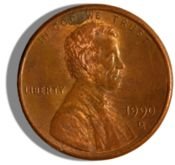
It's a familiar trope - what's new and "revolutionary" is actually old and "tried and true." Political scientist Theda Skopcol has wrote a great article here on the Obama campaign's decision to decline public financing and instead rely upon its legion of small donors. Skopcol writes:
[F]rom my perspective as a scholar who has studied civic and political engagement in America since the 1800s, Obama has discovered the much better route to democratic revitalization. The issue boils down to Mugwumps versus popular mobilizers. A century ago, elite Mugwump reformers decided that the best way to reform U.S. governance was to get money and partisanship out of politics and promote low-key educated discussions. They opposed a nineteenth-century style of electoral and movement politics that, yes, was often corrupted by business money, but was also emotional, stirring, and popularly mobilizing. Most eligible voters turned out for elections, and most public causes were funded by millions of Americans who were supporters or dues-paying members of vast associations. People contributed in small bits to massive national efforts ranging from populism to temperance to fraternal and farmers and labor and women's associations, and they gave their energies as well as their money.Al Giordano at the Field sees the Obama campaign's similarity to Saul Alinsky-style community organizing. I'm inclined to view the Obama campaign as a natural progression of the Howard Dean campaign of 2004. At any rate, both Alinsky and the Dean campaign shared a certain democratic restorative ethos. Both centered on a "bottom-up" participatory approach to political organization. This "small d" notion of democracy also had a restorative element. Alinsky saw monied interests as having wrested-away power from the poor and marginalized. Community organizing would take the power back. The Dean campaign saw the Beltway class (and specifically, the Democratic Party establishment) as pervertors and distorters of the American political process. Running a campaign which did not rely upon beltway pundits and party big-wigs meant the campaign was driven by its members. Both Alinsky and the Dean campaign sought to restore something which it had perceived as having been destroyed - a participatory brand of democracy not dissimilar to the 19th Century.
###
Barry Crimmins' take on the Russerthon is spot on. Russert was no journalist, but more like the popular guy who hosted a weekly dinner party of millionaire Washington courtiers. The Russerthon wasn't about Tim Russert. The Russertathon was about how supposedly important and valuable the dinner party is. To the participants, the dinner party is the apex of political discourse. It's how political issues are supposed to be decided. No wonder the tut-tutting from the dinner party members over Obama's decision to forego public financing. If Obama succeeds, the dinner party just won't matter as much anymore.





No comments:
Post a Comment